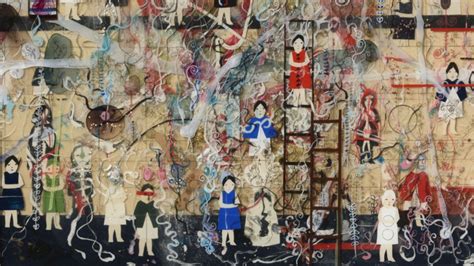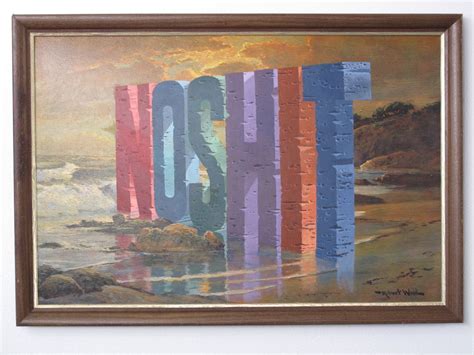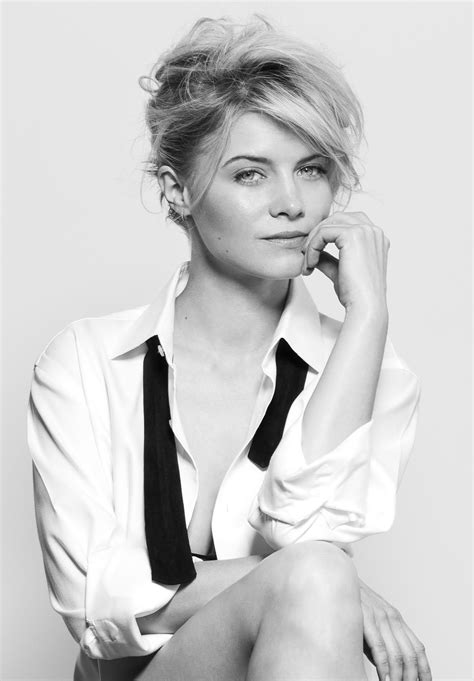A Quote by Steve Martin
You want to know how I think art should be taught to children? Take them to a museum and say, 'This is art, and you can't do it.
Related Quotes
Stand-up is an art but since it's humor and it's funny - a lot of guys that don't think it's art are probably coming from the angle that they don't want to take it so seriously. I've always looked at it as an art but I don't look at it as a pretentious art. I understand it has to be taken lightly because it is just comedy in the end, but the good stand-up comics are someone with something to say.
What I never wanted in art - and why I probably didn't belong in art - was that I never wanted viewers. I think the basic condition of art is the viewer: The viewer is here, the art is there. So the viewer is in a position of desire and frustration. There were those Do Not Touch signs in a museum that are saying that the art is more expensive than the people. But I wanted users and a habitat. I don't know if I would have used those words then, but I wanted inhabitants, participants. I wanted an interaction.
It is a question in that case of breaking up one piece of art, and whether that piece of art can be as best as possible put back together. So it's an argument to say, maybe that's one of those instances, like the bust of Nefertiti, I think that should be given back [Egyptian piece currently in Neues Museum in Berlin]. It's one of those pieces you look at and think that would probably be the right thing to do.
What is the art experience about? Really, I'm not interested in making Art at all. I never, ever, think about it. To say the word Art, it's almost like a curse on art. I do know that I want to try to get closer to myself. The older I get, the more indications I have about what it is to get closer to yourself. You try less hard. I just want to be.
Unless created as freestanding works, quotations resemble "found" art. They are analogous, say, to a piece of driftwood identified as formally interesting enough to be displayed in an art museum or to a weapon moved from an anthropological to an artistic display.... The presenter of found art, whether material or verbal, has become a sort of artist. He has not made the object, but he has made it as art.
Art makes people do a double take and then, if they're looking at the picture, maybe they'll read the text under it that says, "Come to Union Square, For Anti-War Meeting Friday." I've been operating that way ever since - that art is a means to an end rather than simply an end in itself. In art school we're always taught that art is an end in itself - art for art's sake, expressing yourself, and that that's enough.
I never went into aesthetics. Aesthetics is what philosophers have to say about art, and a lot of them take an analytics position and raise the question, "What is an art object?" As soon as you fall into that trap, an artist is going to come along and say, "That isn't art - it's something else." That's a hopeless gig.
I think art must be tough! I think art has to be hard. I don't think it should be easy. I think it should take foot-pounds of energy to produce that art, otherwise we would have more mediocre writers, and we don't have room for any more mediocrity in the world. There's already enough of it being visited on us night and day through the Internet, and through television, and through politics.
I think there is a debate in the arts about, you know, whether we must strive for art for art's sake, and you know, kind of try to keep political debate out of our work. And to that I say, I'd like you to show me an example of, you know, this so-called apolitical art. I don't think there's any such thing.

































